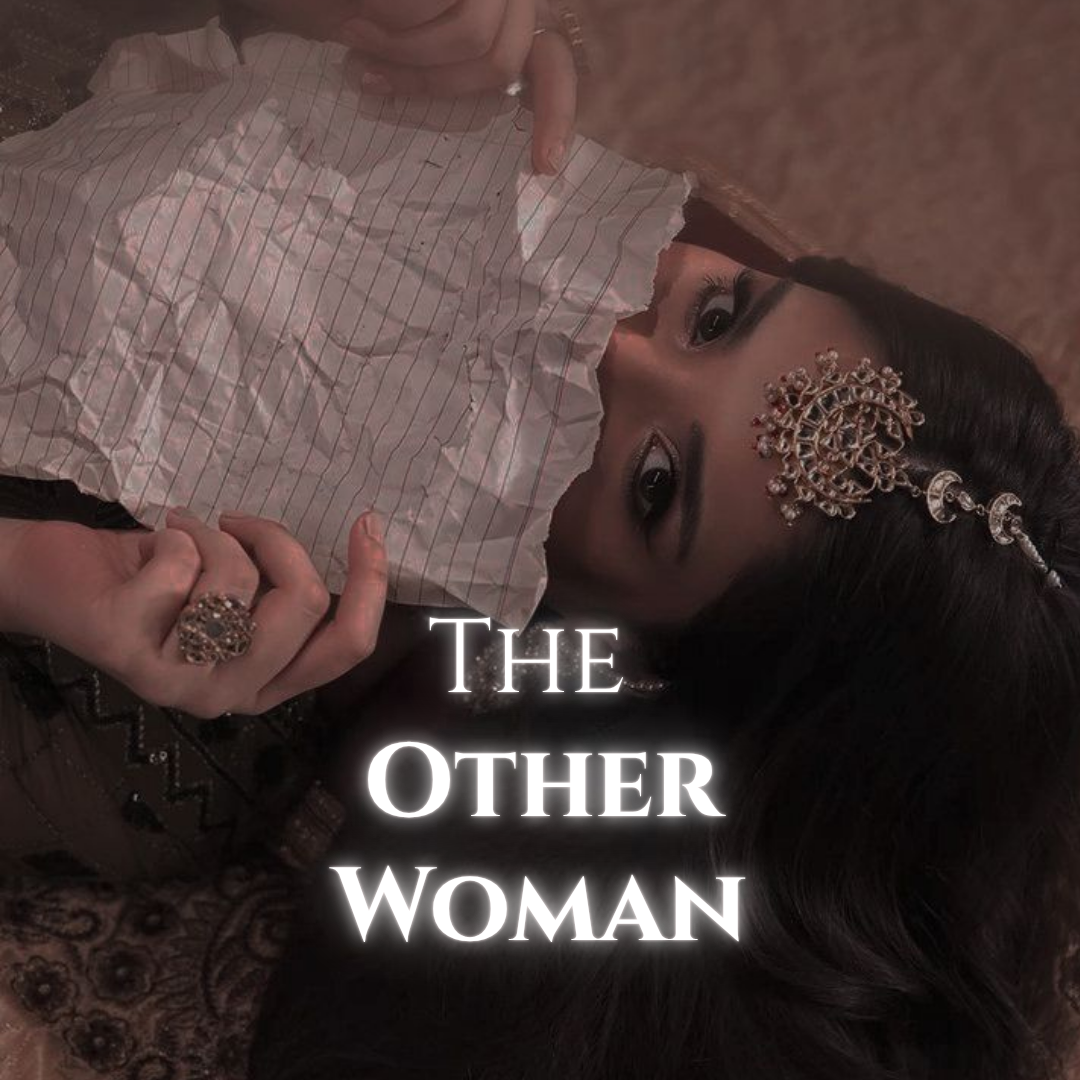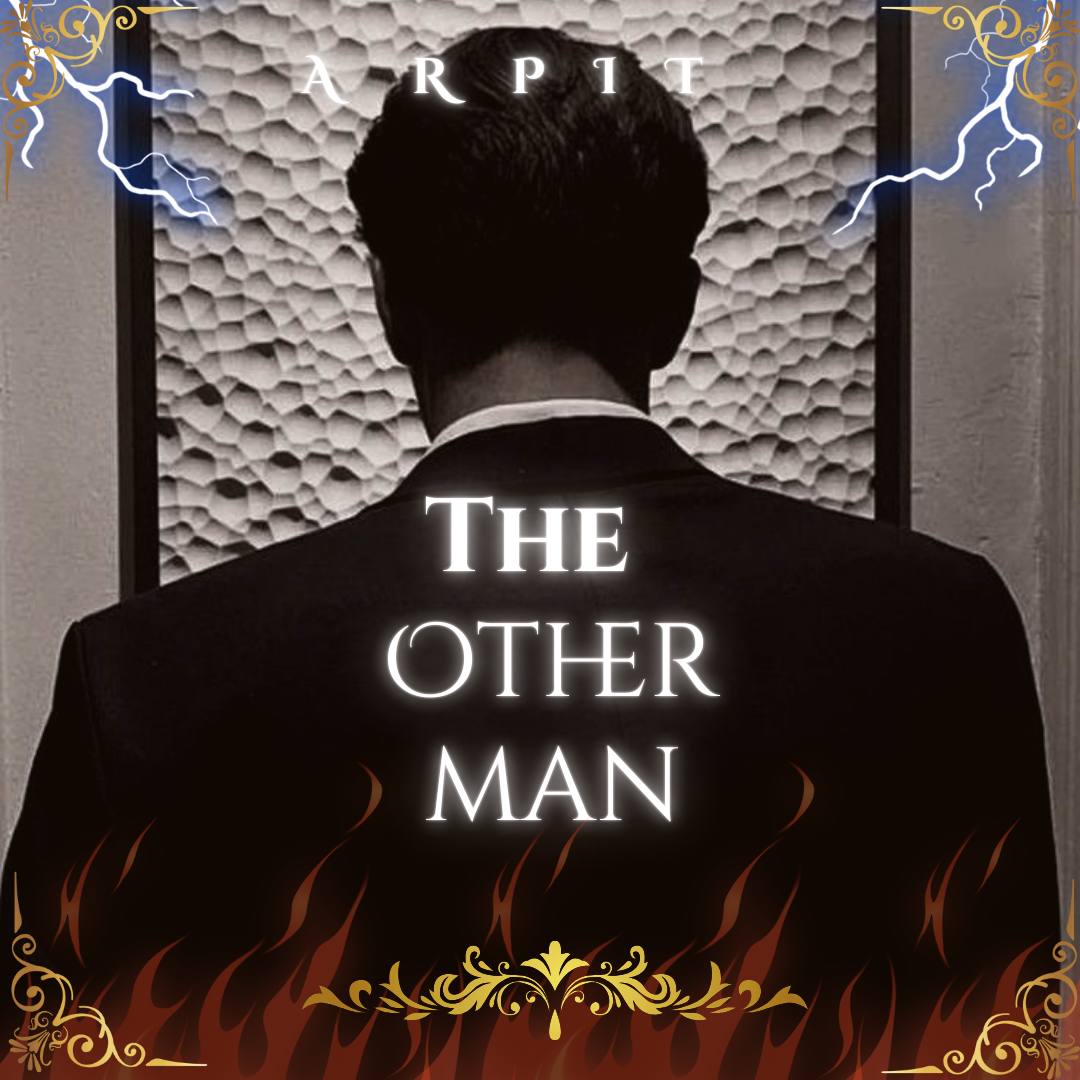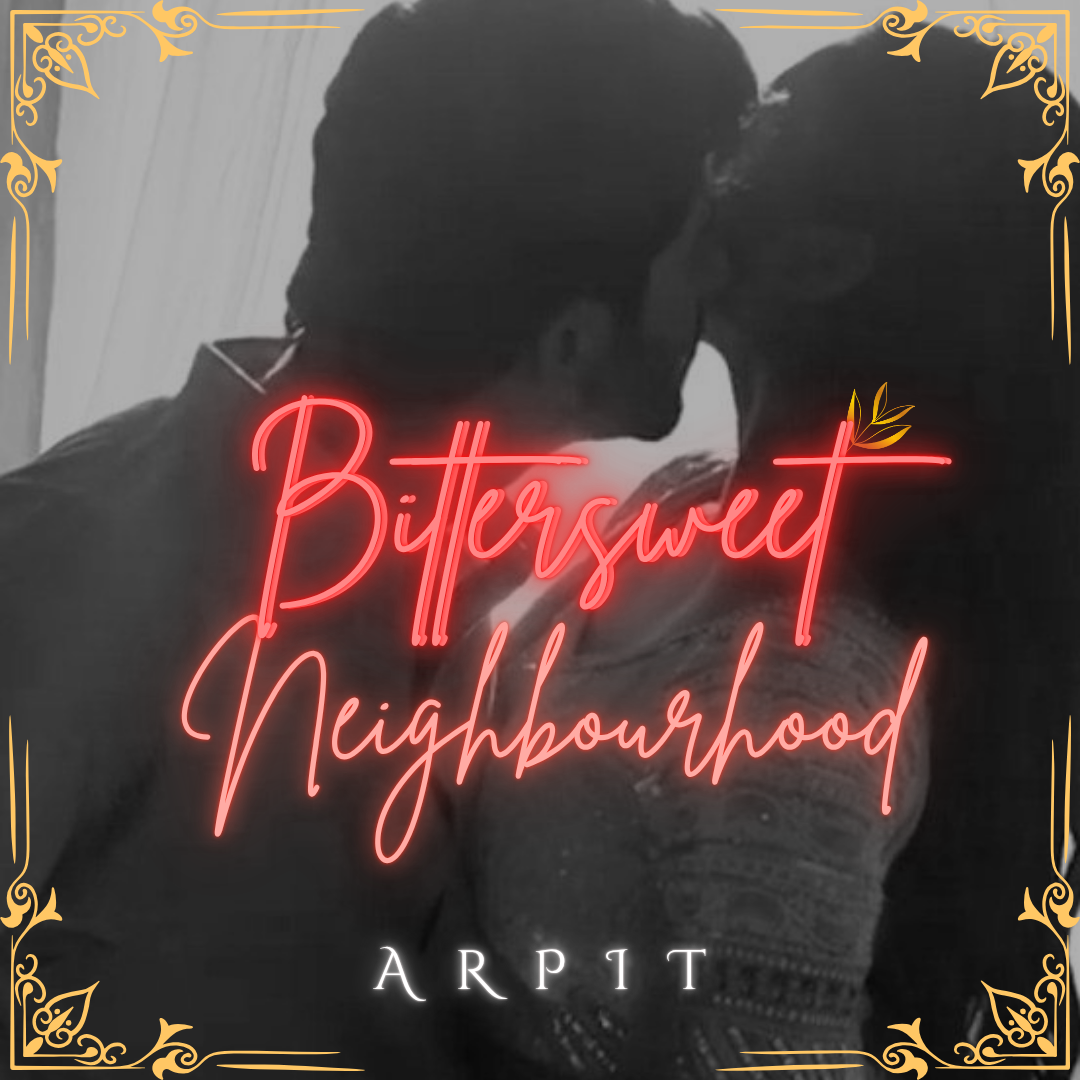
The engine purred quietly as the city blurred past the windows. Tanishk sat in the backseat, silent, his thoughts still anchored in the chaos of yesterday. His jaw was tight, knuckles resting against his lips, mind circling around Kashish’s silence, Malini Devi’s words, and the aching nothingness between them.
Just then, his phone rang.
Kavya – PA flashed on the screen.
He sighed and answered.
“Yes, Kavya?”
Her voice was brisk, professional as always.
“Good morning, sir. I was just informed by Mr. Akhand Chandravanshi’s office that he wishes to meet you regarding the registration of your marriage.”
Tanishk frowned.
“What?”
Kavya continued, reading off her notes.
“Your marriage with Mrs. Kashish Chandravanshi. It was never legally registered. There were delays due to your immediate departure post-wedding, and then your extended stay abroad. Your father would like to finalize the legal registration now.”
There was a long silence on the line.
Tanishk leaned back in his seat, staring out the window but seeing nothing.
Memories flooded him.
The wedding rituals — loud, grand, suffocating.
The fire, the chants, the silence between them even then.
The next morning, he had flown out of India. No explanations. No closure. Just distance.
When he returned a year later, he hadn’t set foot in the Chandravanshi mansion. He built his own life in the penthouse, far from the legacy, far from Kashish.
And now?
Now they wanted to legalize a bond that still hadn’t learned to breathe.
Kavya spoke again, gentler this time.
“Sir… should I confirm your availability for the appointment?”
He didn’t answer right away.
His thumb tapped absently against the phone.
A bitter smile touched his lips.
“Funny, isn’t it?” he muttered, more to himself than her. “We did the fire. The vows. The seven steps. But what we forgot was the most human part of marriage — the choice.”
Another pause. Then:
“Tell them I’ll think about it.”
Kavya hesitated.
“Of course, sir.”
He ended the call and dropped the phone beside him, running a hand down his face.
Register a marriage?
How do you legalize something that doesn’t even exist between two people anymore?
He looked out the window again — and for the first time, wondered if signing that paper would make him feel more trapped...
...or finally free.
Dust danced in the golden morning light streaming through the high windows. The room smelled faintly of old paper, wood polish, and time.
Tanishk stood near the bookshelf, flipping through old files half-heartedly. He wasn’t even sure what he was looking for anymore — maybe an excuse to stay longer. Maybe a distraction from the marriage papers waiting for his signature.
As his fingers trailed across a lower shelf, something thick and leather-bound caught his eye.
He pulled it out.
A photo album.
Worn around the edges. Familiar.
He sat down in the armchair near the window, the album heavy in his hands — like the weight of a hundred memories packed into pages.
He opened it.
The first picture: His childhood. He, barely five, stood with a mischievous grin, smeared in birthday cake, while Malini Devi held him from behind and Tarini, his elder sister, had her arms around his shoulders.
His father, Akhand Chandravanshi, stood tall beside them — his expression proud, reserved. A family frozen in time, before responsibilities, before distance.
He turned the page.
There she was.
Kashish.
A school annual day photo — they were in costume. He in a prince’s robe, she in a sunflower yellow lehenga, smiling wide with missing front teeth. Their cheeks pressed together, carefree.
Next page.
Holi. He was drenched in colors, hair a wild mess. Kashish stood beside him, mid-laugh, eyes shut, hands in the air. That laugh — he could almost hear it. Loud. Unfiltered. Unapologetically her.
The further he flipped, the more he found her.
Every festival. Every vacation. Every stolen moment.
She was always there — not in the background, but right beside him.
His shadow in sunlight.
His quiet in chaos.
His constant.
He smiled faintly, then exhaled deeply, heart tightening.
He remembered one summer night. They were fifteen, lying on the terrace, watching the stars. Their friends were talking nonsense, asking the usual teenage questions about love and marriage.
One of the girls asked Kashish what kind of husband she wanted.
“Someone simple,” she had said with a soft laugh. “Not royal like me. Not from legacy. Just someone who loves me. Unconditionally.”
The words echoed now like a ghost through time.
Tanishk had laughed then. He didn’t match any of that.
And when they turned to him — asking about his dream wife — he’d shrugged, pretending not to care, before saying:
“Someone quiet. Shy. Soft-spoken. The kind who turns red even when you look at her.”
Everyone had burst into laughter.
And Kashish, wiping her tears of laughter, had nudged his shoulder and said—
“Don’t worry, I’ll find your blushing bride.”
Back then, it was all jokes. Laughter. Innocence.
Now, he sat in the same chair, in the same house, with the same girl as his wife…
…But nothing felt the same.
Their laughter was gone.
So was their friendship.
So was the comfort of believing they'd never hurt each other.
He closed the album softly, letting his hand rest on its cover.
And whispered under his breath —
“How did we get so far from there?”
The answer never came.
Only the silence.
And the dull ache of what was lost — maybe forever.
The photo album rested on the side table now, closed — but the memories still lingered like smoke in the air.
Tanishk sat in silence, lost in thoughts too heavy to share, when a soft knock broke through the stillness.
Knock. Knock.
He looked up, startled slightly.
A familiar voice followed:
“Sahib? May I come in?”
It was Shree.
“Yes,” he said, his voice calmer than he expected.
The door creaked open. Shree stepped in, her dupatta tucked neatly around her shoulders, her eyes unsure yet resolute.
She stood near the entrance, fidgeting slightly with the edge of her kurti.
“I… I wanted to speak to you about something.”
He nodded. “Go ahead.”
Shree hesitated, choosing her words carefully. Then:
“I think… I s-should move out.”
Tanishk blinked, surprised. Before he could say anything, she continued.
“I never felt right staying there without contributing. You’ve been kind, but it’s not… right. I can find a job, or a small place to rent. Or even work for you, if you allow it. I just don’t want to keep living there for free.”
Her voice was gentle, but her resolve was unshakable.
Tanishk stood slowly, walking toward her, frowning slightly — not out of annoyance, but concern.
“Shree, you don’t owe me anything,” he said. “You don’t need to spend a rupee. Not for rent, not for food. You’re not some guest. That place is just as much your home right now.”
She opened her mouth to protest, but he held up a hand.
“You want to work, I understand. I respect it. But don’t ever think you're a burden. I didn’t bring you there to weigh you down with guilt.”
Her eyes shimmered with something soft — not tears, but gratitude.
“I know, sahib… But it doesn’t feel like mine. Not truly.”
A silence passed between them.
He looked at her — really looked — and realized that Shree wasn’t just trying to pay rent.
She was trying to earn dignity, in a world that had probably taken too much of it from her already.
Tanishk nodded slowly, understanding.
“We’ll figure something out. Together. But not out of obligation — only if you want to.”
She smiled faintly. “I do.”
He gestured toward the chair. “Sit. I could use some company, honestly.”
She hesitated, then sat down — the two of them side by side, different wounds, same weight.
Outside, the wind rustled the curtains.
Inside, for the first time in a long while — the silence felt like comfort instead of war.
Evening, Chandravanshi Mansion
Kashish sat at the edge of the swing in the back garden, her dupatta wrapped tightly around her shoulders. The breeze was cool, scented faintly with jasmine — the only thing that hadn’t changed in this house.
Malini came and sat beside her, not saying anything for a while.
The chain of the swing creaked gently.
“Maa sa you need something?”
Kashish asked, voice barely a whisper.
Malini didn’t answer.
Instead, she said, “If you need to walk away from this marriage, Kashish, do it. I’ll support you. You are like my daughter but I can't see any girl being pushed into a relationship like you are doing. A marriage means two people , always one can’t be the one who gives 100 percent, and the other one will be not show up for ever.”
Tears welled up in Kashish’s eyes — not from pain, but from the relief of finally being told she had a choice.










Write a comment ...